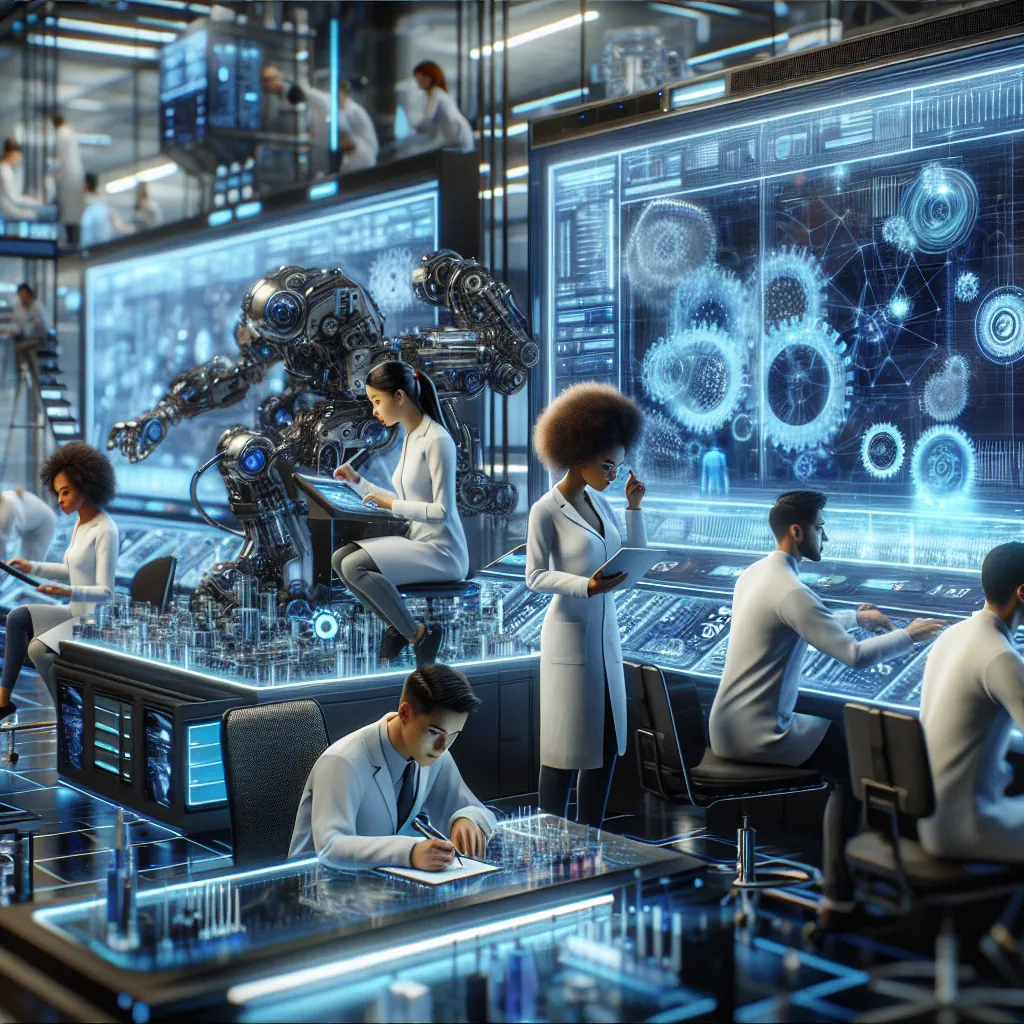Harnessing the Power of Artificial Intelligence for Practical Solutions
Artificial Intelligence (AI) has emerged as a powerful tool for driving innovation and solving complex problems across various industries. Harnessing the power of AI, businesses are breaking new ground in technology by leveraging its capabilities to develop practical solutions that were once thought to be impossible. From predictive analytics to natural language processing, AI is revolutionizing the way businesses operate and interact with their customers.
One of the key areas where AI is making a significant impact is in predictive maintenance. By analyzing data from sensors and equipment, AI algorithms can predict potential failures and issues before they occur, allowing businesses to proactively address maintenance needs and avoid costly downtime. This has the potential to drastically improve operational efficiency and reduce maintenance costs in industries such as manufacturing, transportation, and energy.
Furthermore, AI is being utilized to enhance customer service experiences through chatbots and virtual assistants. These AI-driven solutions can understand and respond to natural language, providing personalized support to customers and improving overall satisfaction. In addition, AI-powered recommendation systems are transforming the way businesses engage with their customers by offering tailored product suggestions based on individual preferences and purchasing behaviors.
Moreover, the healthcare industry is also benefitting from AI technologies, with applications ranging from disease diagnosis to drug discovery. AI-driven diagnostic tools can analyze medical images and patient data to identify potential health issues, enabling healthcare professionals to make more accurate and timely diagnoses. Additionally, AI algorithms are being employed to sift through vast amounts of biomedical data to expedite the process of drug discovery and development.
In conclusion, the harnessing of AI for practical solutions is propelling innovation and reshaping the technological landscape across diverse sectors. As businesses continue to explore the potential of AI, we can expect to see even more groundbreaking applications that address pressing challenges and drive efficiency and productivity to new heights.
Revolutionizing Healthcare with Cutting-Edge Medical Technologies
Revolutionizing Healthcare with Cutting-Edge Medical Technologies
In recent years, the healthcare industry has witnessed a revolution driven by cutting-edge medical technologies. These innovations have not only transformed the way medical professionals diagnose and treat diseases but have also significantly improved patient outcomes. From advanced imaging techniques to precision medicine and telehealth, technology is reshaping the healthcare landscape in unprecedented ways.
One of the most groundbreaking advancements in healthcare technology is the emergence of precision medicine. By leveraging genetic insights, data analytics, and molecular diagnostics, precision medicine enables healthcare providers to deliver personalized treatment plans tailored to individual patients. This targeted approach has proven to be particularly effective in the treatment of cancer and rare genetic disorders, where standard treatment protocols have often fallen short.
Furthermore, the integration of artificial intelligence (AI) and machine learning algorithms has bolstered diagnostic accuracy and efficiency. Medical imaging technologies powered by AI can swiftly analyze complex data sets, leading to early detection of diseases and providing insights that were previously unattainable. Additionally, AI-driven predictive analytics are enhancing care management by forecasting disease progression and identifying at-risk patients, thereby enabling proactive interventions.
Telehealth has emerged as another transformative technology, especially in the wake of the global pandemic. Through virtual consultations and remote monitoring, patients can access quality healthcare services from the comfort of their homes. This has not only improved healthcare accessibility but has also mitigated the burden on traditional healthcare facilities, allowing them to focus on critical care needs.
In conclusion, the integration of cutting-edge medical technologies is propelling the healthcare industry into a new era of personalized, efficient, and accessible care. As these innovations continue to evolve, they hold the potential to alleviate healthcare disparities, empower patients, and drive remarkable advancements in disease prevention and treatment.

